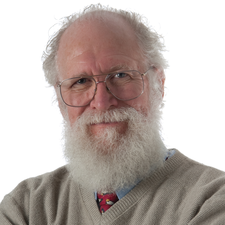Doghouse – The Year of *x
Tempus fugit

Maddog gives a brief history of the last (almost) half century of *x, plus a call for spreading the love.
A favorite expression of mine is ``Time flies when you are having fun.'' I usually save it for those few times when things are not going the way I hoped they would.
However, next year is 2019, and that is a very special year in my life. For in 2019, I will have been programming for 50 years ... or as I like to say it, ``a half century,'' which I think sounds more impressive than merely saying ``50 years.''
I learned to write my first program in Fortran on an IBM 1130 computer (with punched cards), through a correspondence course sponsored by the Western Electric Company, the manufacturing arm of the Bell System. I was an electrical engineering co-op student at Drexel University, and through this one course, I became ``hooked'' on programming.
[...]
Buy Linux Magazine
Subscribe to our Linux Newsletters
Find Linux and Open Source Jobs
Subscribe to our ADMIN Newsletters
Support Our Work
Linux Magazine content is made possible with support from readers like you. Please consider contributing when you’ve found an article to be beneficial.

News
-
Parrot OS Switches to KDE Plasma Desktop
Yet another distro is making the move to the KDE Plasma desktop.
-
TUXEDO Announces Gemini 17
TUXEDO Computers has released the fourth generation of its Gemini laptop with plenty of updates.
-
Two New Distros Adopt Enlightenment
MX Moksha and AV Linux 25 join ranks with Bodhi Linux and embrace the Enlightenment desktop.
-
Solus Linux 4.8 Removes Python 2
Solus Linux 4.8 has been released with the latest Linux kernel, updated desktops, and a key removal.
-
Zorin OS 18 Hits over a Million Downloads
If you doubt Linux isn't gaining popularity, you only have to look at Zorin OS's download numbers.
-
TUXEDO Computers Scraps Snapdragon X1E-Based Laptop
Due to issues with a Snapdragon CPU, TUXEDO Computers has cancelled its plans to release a laptop based on this elite hardware.
-
Debian Unleashes Debian Libre Live
Debian Libre Live keeps your machine free of proprietary software.
-
Valve Announces Pending Release of Steam Machine
Shout it to the heavens: Steam Machine, powered by Linux, is set to arrive in 2026.
-
Happy Birthday, ADMIN Magazine!
ADMIN is celebrating its 15th anniversary with issue #90.
-
Another Linux Malware Discovered
Russian hackers use Hyper-V to hide malware within Linux virtual machines.

